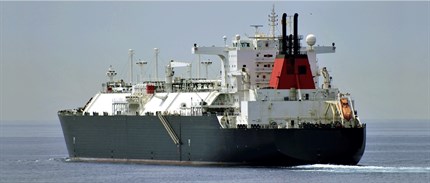Steelhead LNG and Seven Generations to create low-cost LNG supply for Asia

A new development agreement between Steelhead LNG and Seven Generations Energy Ltd. (7G) sets the stage for engaging Aboriginal groups and communities as the two companies explore the development of new midstream infrastructure to support Steelhead LNG’s proposed natural gas liquefaction and export projects on Vancouver Island.
The arrangement, through which 7G has also acquired a minority interest in Steelhead LNG, is expected to provide potential new markets for 7G’s production as well as increased certainty of natural gas supply for Steelhead LNG.
“This arrangement with Seven Generations creates an opportunity, in the current price environment, for an LNG solution from well-head to customer that’s uniquely led by Canadian companies,” said Steelhead LNG Chief Executive Officer Nigel Kuzemko. “Our shared focus on engaging early and often with Aboriginal groups and communities, combined with our collective commitment to produce and deliver low cost, low emissions Canadian natural gas, positions each company to succeed in expanding Canada’s exports of clean-burning natural gas to Asian markets.”
“This partnership formed by Steelhead LNG and Seven Generations Energy is an example of Canadian companies working together in innovative ways to deliver Western Canadian natural gas to market, which benefits not only British Columbians and Albertans, but all Canadians,” said Rich Coleman, BC Minister of Natural Gas Development. “Their commitment to work with First Nations and communities in a collaborative manner, while at the same time support British Columbia’s role as a leader in progressing global climate change objectives, will contribute to the success of these projects. While LNG markets are challenging at the moment, with projects like these and others under development, British Columbia will be exceptionally well-positioned to become a leading supplier of LNG to Asian markets in the coming years.”
“This export market development initiative aims to achieve long-term and sustainable success through the meaningful engagement of those who care about the environment, governments and regulators, communities, business partners and infrastructure customers, suppliers and service providers, employees and shareholders and capital providers,” said Pat Carlson, Seven Generations’ Chief Executive Officer.
“We believe scalable projects like those being proposed by Steelhead LNG, that engage First Nations and communities from the beginning and place a high priority on our environment and safety, will deliver strong benefits to local communities, British Columbians, Albertans and Canadians. Steelhead LNG’s approach aligns with our Code of Conduct, which puts a fundamental emphasis on working collaboratively with communities by incorporating local insight, wisdom and advice during project planning,” said Carlson, who has joined the board of directors of Steelhead LNG.
Steelhead and 7G believe that helping countries to shift away from greenhouse-gas-intensive (GHG) energy sources such as low-quality coal to reduce global greenhouse gas and particulate emissions, which impact Canada and other parts of the world, is a global priority. Canada has the means to meaningfully contribute to this objective, affirming its role as a leading global citizen. Steelhead LNG and 7G will support this effort by providing low-cost delivery of cleaner-burning natural gas produced in a responsible manner through sustainable practices focused on reducing GHG emissions throughout the Canadian supply chain. The proximity of Steelhead LNG’s projects to market also reduces GHG emissions during shipping.
Steelhead LNG is also exploring ways of accessing newly emerging LNG markets such as the conversion of international shipping vessels to LNG from bunker fuel and diesel. With the transportation industry responsible for one of the largest shares of global GHG emissions, converting to natural gas will help industry support emissions reduction targets. This is due to LNG putting about 25% fewer GHG emissions into the atmosphere compared to diesel and oil.

- Freeport LNG export plant in Texas reports shutdown of liquefaction train
- TotalEnergies and Mozambique announce the full restart of the $20-B Mozambique LNG project
- RWE strengthens partnerships with ADNOC and Masdar to enhance energy security in Germany and Europe
- Five energy market trends to track in 2026, the year of the glut
- Venture Global wins LNG arbitration case brought by Spain's Repsol



Comments